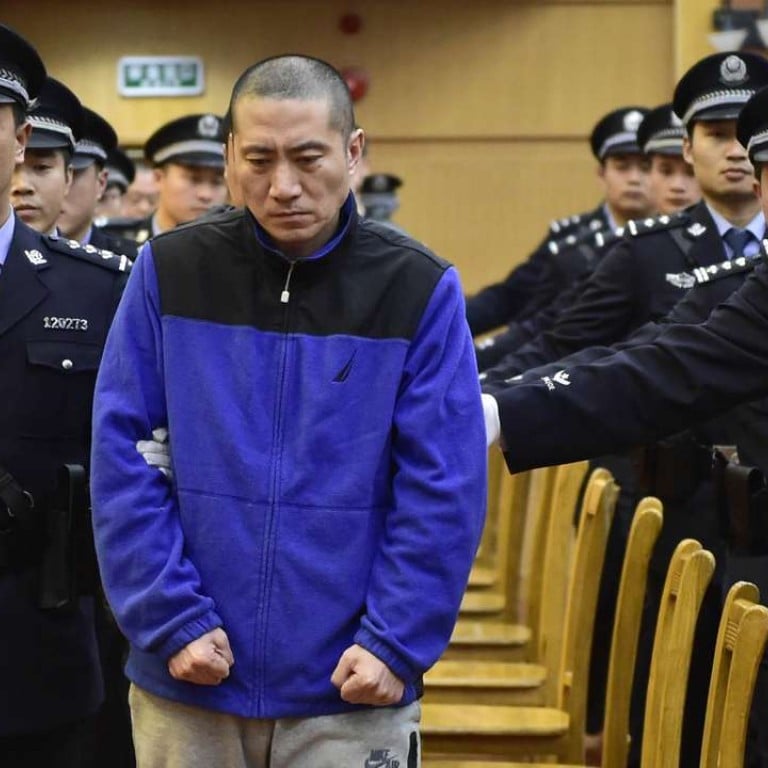
Chinese warehouse chief gets suspended death sentence over 2015 Tianjin blast that killed 173
A Chinese court on Wednesday gave the head of a logistics company a suspended death sentence over a massive explosion at a chemical warehouse in Tianjin in 2015 which killed 173 people, most of them firefighters and police officers.
Tianjin’s No 2 Intermediate Court ruled that Yu Xuewei, chairman of Ruihai International Logistics, paid bribes to obtain permission to illegally store more than 49,000 tonnes of sodium cyanide and other highly toxic chemicals at the company’s warehouse in the city’s port area between 2013 and 2015.

Such sentences are usually commuted to life in prison after two years.
Various other Tianjin courts gave lesser sentences to 48 other people. They included 25 local government officials and workers accused of dereliction of duty, abuse of power and bribe taking, 12 other Ruihai employees accused of taking part in the scheme and 11 employees of a company that provided false certificates supporting the company’s operations.
In a video shown on state broadcaster CCTV, Yu told the judges that he regretted his actions and would not appeal.
“I want to use this opportunity to apologise to those who died and were hurt in the blasts and their families, as well as all the citizens of the nation,” Yu said.

A series of blasts ripped through the industrial Binhai New Area in Tianjin’s port area late on August 12 2015 causing one of China’s deadliest industrial accidents in recent years. The resulting investigation was directly overseen by the Cabinet.
Investigators found that the first blast was triggered when stocks of nitrocellulose, a flammable compound used as a binding agent with medical applications and as an ingredient of lacquer, became too dry and caught fire in the August heat.
The flames then spread to illegal stores of the combustible fertiliser ammonium nitrate, triggering a series of blasts that flattened the warehouse, destroyed an adjacent area of land storing vehicles and caused extensive damage to neighbouring residential buildings.
The blasts contaminated the air, water, and soil in the immediate area, but did not affect the environmental quality of the ocean bay on which Tianjin sits, the investigators said.

